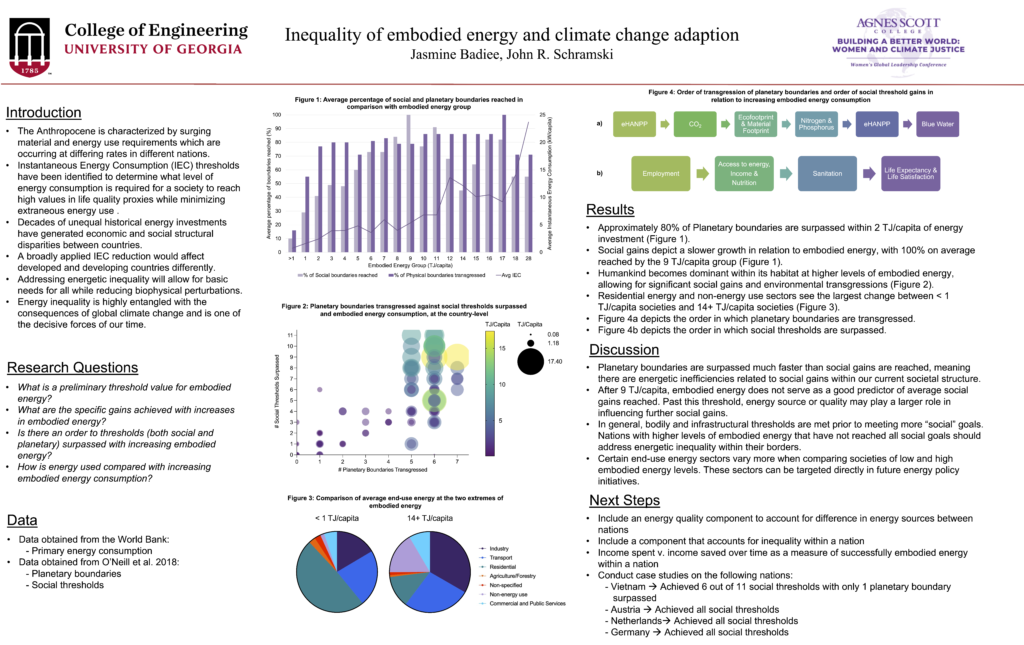Inequality of embodied energy and climate change adaptation
Jasmine Badiee, The University of Georgia
jasminebadiee@uga.edu
The era of the Anthropocene is characterized by surging energy use for the purpose of pursuing social and economic goals. However, differing national energy consumption rates over time have led to differing country-level social and economic circumstances. This historically unequal energy consumption generates ongoing social structural and economic disparities between nations, for example, through embodiment in material and social infrastructures which contribute greatly to human quality of life. Addressing this inequality of embodied energy will be vital for meeting basic needs for all and reducing biophysical perturbations. Preliminary research shows a correlation between embodied energy and achievements in human quality of life proxies. A broadly applied embodied energy value of 5000 GJ/capita may ensure predictable levels of human wellness. Nations that have reached this level of embodied energy per capita could potentially leverage their existing infrastructures as an opportunity to scale down the rapid rate of energy use. This research presents energy consumption in an unconventional but urgently needed new perspective that considers equitability.

